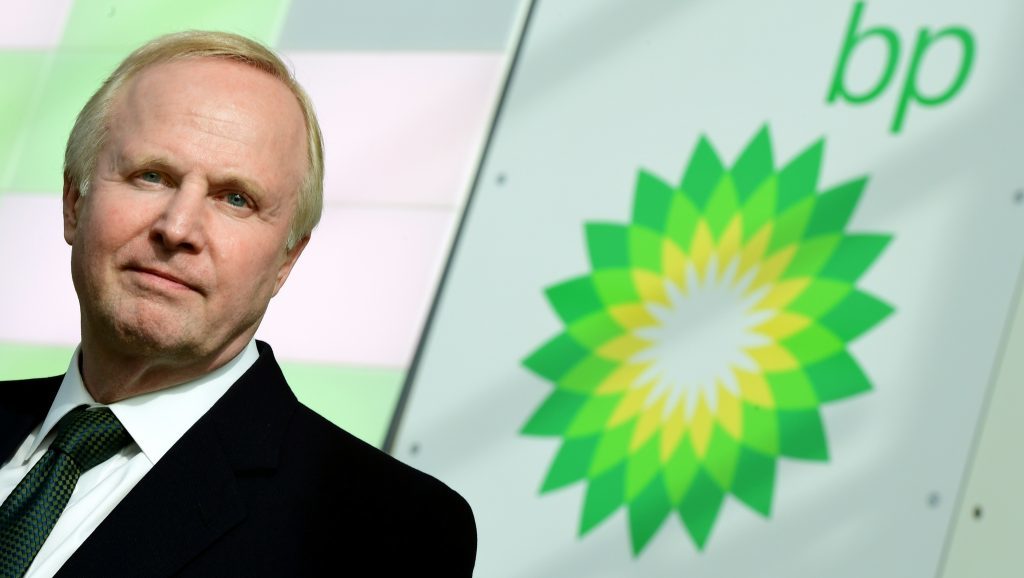
BP boss Bob Dudley launched a wide-ranging attack on the divestment movement that’s calling on institutional investors to sell down their oil stocks, rejecting warnings from the likes of the Bank of England that hydrocarbons present a risk to the financial system.
There are “people who want to drive a wedge between the energy industry and investors — between oil and money,” Dudley said Wednesday at the Oil & Money conference in London. “They push for potentially confusing disclosures, raise the specter of a systemic risk to the financial system from stranded assets, and campaign for divestment.”
The criticism puts the British oil major at odds with the country’s central bank. Governor Mark Carney has suggested that the fight against climate change could leave some oil reserves stranded — effectively worthless — and that the exposure of U.K. investors is “potentially huge.” Now asset managers are increasingly prodding the world’s biggest polluters to come up with stronger green strategies.
Proponents of the divestment movement “are driven by good intentions, but my concern is that their suggested recommendations could lead to bad outcomes,” Dudley said. “We could take a different, more innovative and collaborative path. One that recognizes many fuels must play a part in meeting the dual challenge — albeit made much cleaner.”
Since activist group 350.org started the climate divestment movement in 2012, multiple institutional investors have signed up to the six Principles for Responsible Investment, a United Nations-backed framework for incorporating environmental, social and governance issues into investment practices.
Carney himself is leading a group called the Task Force on Climate-Related Financial Disclosures, prodding companies to make transparent the risks they face from environmental rules. Dudley cautioned that such disclosures can open companies up to potential litigation.
“I know what will happen: we’ll get sued by a certain industry because we’re off the path after a year,” he said. “So we need some sort of safe-harbor statements” from the regulator before that can work.
Recommended for you
